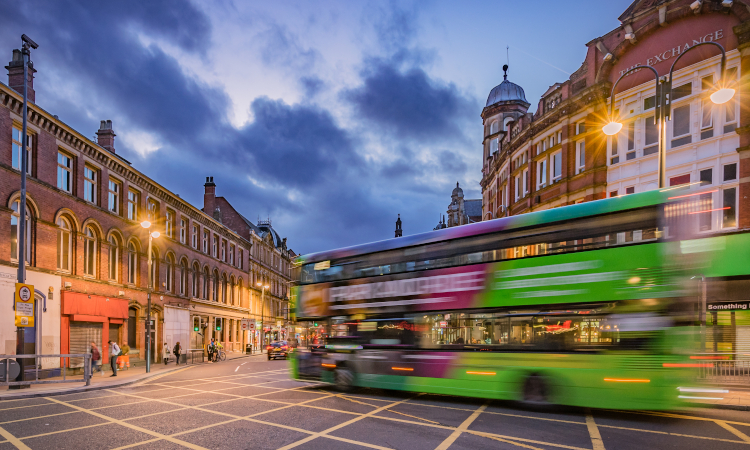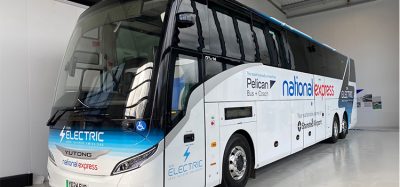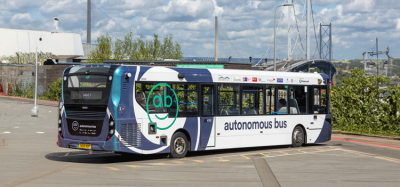Leeds Clean Air Zone no longer required after reaching air quality goals
- Like
- Digg
- Del
- Tumblr
- VKontakte
- Buffer
- Love This
- Odnoklassniki
- Meneame
- Blogger
- Amazon
- Yahoo Mail
- Gmail
- AOL
- Newsvine
- HackerNews
- Evernote
- MySpace
- Mail.ru
- Viadeo
- Line
- Comments
- Yummly
- SMS
- Viber
- Telegram
- Subscribe
- Skype
- Facebook Messenger
- Kakao
- LiveJournal
- Yammer
- Edgar
- Fintel
- Mix
- Instapaper
- Copy Link
Posted: 13 October 2020 | Intelligent Transport | No comments yet
Despite achieving clean air targets without the need for a Clean Air Zone, Leeds City Council is proposing to voluntarily introduce stricter new targets for local air quality that align with WHO guidelines.


The planned Clean Air Zone in the UK city of Leeds is no longer required, thanks to businesses switching to cleaner vehicles faster than expected. The conclusion was reached following a joint review by Leeds City Council and central government.
More than 90 per cent of buses and 80 per cent of heavy goods vehicles driven in the city now use cleaner Euro VI engines and therefore wouldn’t be charged if a zone was introduced. Meanwhile, nearly half of the city’s licensed taxi and private hire cars are also now hybrid or electric.
Because of the dramatic shift to cleaner vehicles, the review found that air pollution in Leeds on key routes is below legal limits and is not likely to exceed them again – even if traffic were to return to ‘normal’ levels or even slightly higher. A statement says that transport infrastructure improvements and the surging popularity of ultra-low emission vehicles in Leeds are further accelerating improvements to the city’s air quality.
Next steps, conclusions and proposals to voluntarily introduce new air quality targets that go further than the national standards will be discussed by councillors at a meeting of the council’s Executive Board in the week beginning 19 October.
Leeds city council has written to the British government requesting to keep £6.9 million of CAZ funding that Leeds had previously secured to “lock in” the full extent of air quality improvements. The council has proposed that the money would be used to continue offering grants to help local businesses switch to cleaner vehicles, as well as to provide free licensing costs to drivers of less polluting taxi and private hire cars.
The city will already be able to keep and repurpose the ANPR camera infrastructure that had been installed to monitor and enforce the zone. In the unlikely event that air quality declined for any reason, the council retains this infrastructure and could seek support from central government to introduce a Clean Air Zone.
In other news…
Commenting on the news, Councillor James Lewis, Deputy Leader for Leeds City Council and Executive Board member with responsibility for air quality, said: “Thanks to our city’s collective effort, Leeds residents are breathing air that is cleaner and safer than ever before.
“When we consulted on the CAZ in 2018, we said that we hoped that no one would be charged because businesses would switch to less polluting vehicles before the charging system takes effect. That is exactly what has happened. We have achieved the aims of the Clean Air Zone without having to charge a single vehicle. If Leeds were to introduce a CAZ today, only a fraction of vehicles would be affected because the vast majority of businesses are now driving cleaner vehicles than they were just a few years ago.”
As part of an updated air quality strategy being brought forward early next year, Leeds City Council is proposing to voluntarily introduce stricter new targets for local air quality that are aligned with World Health Organisation guidelines.
“While we celebrate that our air is cleaner than ever, and cleaner than some other UK cities, this council also recognises that air pollution remains the biggest environmental threat to our health,” explained Lewis. “That’s why we’re considering voluntarily introducing even stricter targets for Leeds, aligned with WHO guidelines. We will continue working hard to protect the health of everyone in Leeds from the effects of polluted air.”
Related topics
Air Quality, Sustainable Urban Transport
Related modes
Bus & Coach, Taxi
Related cities
Leeds
Related organisations
Leeds City Council
Related people
James Lewis








